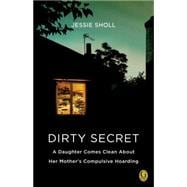
What is included with this book?
The New copy of this book will include any supplemental materials advertised. Please check the title of the book to determine if it should include any access cards, study guides, lab manuals, CDs, etc.
The Used, Rental and eBook copies of this book are not guaranteed to include any supplemental materials. Typically, only the book itself is included. This is true even if the title states it includes any access cards, study guides, lab manuals, CDs, etc.
PROLOGUE
DON’T KICK ME OUT!” MY MOTHER SAYS WHEN I PICK UP the phone. It’s a little hard to understand her, though, because she’s laughing so hard.
“What are you talking about?”
She can’t be considering inflicting a visit on me. That is not going to happen.
“I’m putting my house in your name,” my mother says. “You have to promise not to kick me out after it’s yours.”
“I don’t want your house,” I say. “You couldn’t pay me to take your house.”
“You have to take it.” She stops laughing. “I have cancer.”
My first thought: My mother is going to die.
My second thought: I can finally clean her house. She hasn’t let me inside in more than three years, not since the last time I cleaned—or, rather, gutted, it.
David, my husband, is standing in the doorway between the living room and the kitchen, watching me. I mouth the words Cancer, my mom has cancer, but he doesn’t understand. And why would he? I don’t understand what’s happening myself.
“Mom, please. Just tell me what’s going on.”
“Okay,” she says, sounding suddenly drained of all energy. “I had a colonoscopy and they found a polyp and it’s malignant. I have colon cancer. I want the house in your name in case the bills are higher than my insurance—that way they can’t take it away.”
“What did your doctor say? Tell me exactly what he said.”
At this, my husband comes over and sits down next to me on the couch. He lifts our dog, Abraham Lincoln, onto my lap, thinking his presence will comfort me, but I shake my head and allow the dog to squirm off. I already feel myself floating away from here, already mentally searching for a way to fix my mother, like always.
“They won’t really have a prognosis until the surgery,” she says. “But with the house in your name, it’ll be yours no matter what.”
She says it as if she’d be bestowing the most spectacular palace upon me, rather than what her house really is: the source of so many years of frustration, embarrassment, and grief. I can’t imagine anything worse than being legally responsible for that house. Except my mother having cancer.
“Jessie, will you do it?” She pleads. “Will you let me put my house in your name?”
“Will you let me clean?”
“Yes.” Her lack of hesitation makes me even more worried. She must not think her chances are good.
“Okay.”
* * *MY MOTHER IS a compulsive hoarder. She’s one of those people who dies because the firemen couldn’t get through the piles of newspapers and clothes and books and shoes and garbage, whose junglelike lawn makes the whole block look shoddier, whose friends and neighbors are shocked when they finally see the house’s interior: They had no idea their friend/daughter/nurse/teacher lived that way. They had no idea anyone could live that way. Yet an estimated six million Americans do.
I’ve long searched for the perfect concoction of begging, conniving, and bribing that would finally make my mother throw out the trash and keep her house clean. Because I know that if I could get her to unclutter her house, her cluttered mind would follow: Somewhere under all the filth is a reliable mother, a consistent and compassionate mother; somewhere under the heaps of moth-eaten sweaters and secondhand winter coats, the cardboard boxes kept because they’re “just such good quality,” the jar after jar of unopened jumbo-sized facial scrubs and green clay masks and aloe vera skin creams, the plastic forks and dirty paper plates and gum wrappers and dried-out pens and orphaned Popsicle sticks. Every surface covered, crowded with layer upon layer of stuff. I know she’s in there; I just have to find her.
I make the preparations to fly to my hometown of Minneapolis from New York City, where I’ve lived for most of the last decade. I tell no one that while I’m in Minneapolis for my mother’s surgery the majority of my time will be spent filling up garbage bags and hauling trash from her house, that my muscles will ache so badly I’ll barely be able to lift a coffee mug to my lips, that only an hour-long soak in a scalding-hot bath at my dad and stepmom’s house at the end of each day will erase the layers of filth and grime from my skin. Only my husband knows that part. I tell no one else because it’s my secret. And I tell no one at all that in spite of our complicated relationship, the thought of her dying is absolutely unbearable and that if that happened I would be shattered into a million pieces and there would be no way, no one, to put me back together.
© 2011 Jessie Sholl